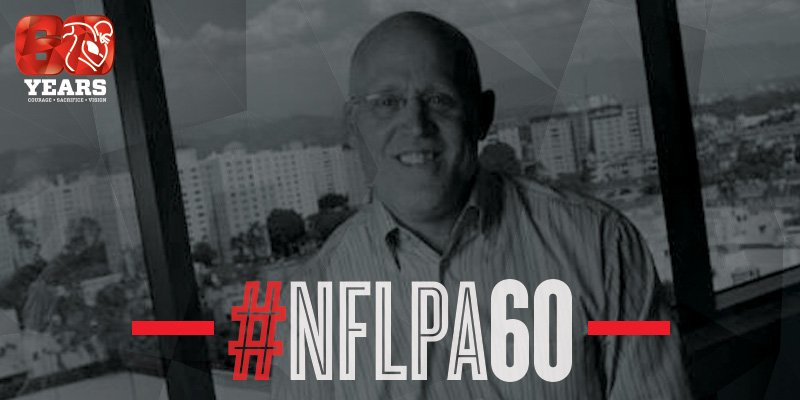60 Heroes: Doug Allen’s Outspoken Voice

Before Doug Allen even suited up for his first NFL game, the former Penn State linebacker was making waves as an activist for players’ rights. Soon after being drafted by the Buffalo Bills in 1974, Allen demonstrated his support of the veterans who were then on strike against the NFL by helping to lead a boycott of the Chicago College All-Star Game, a contest pitting college seniors against the reigning Super Bowl champs.
After two years as a player rep for the Bills, Allen retired in 1976 and joined the political wing of the AFL-CIO. While there, Allen worked with the NFLPA to help better establish its reputation within the national labor movement. In 1981, he officially rejoined the players union by becoming an assistant to the Executive Director. With the 1982 strike looming, Allen immediately went to work, travelling across the country to educate the players on league economics and help them prepare for a regular season strike until a new collective bargaining agreement was hammered out later that year.
The next year, Allen split his duties between the NFLPA and as Executive Director of the players union for the new United States Football League until it folded in 1986. With the players striking again in 1987, Allen’s efforts were vital in navigating the union through the fight for free agency that spilled into the next decade. As Gene Upshaw’s point man in developing licensing and marketing revenues for the NFLPA to sustain its fight in the courts, Allen generated revenue by negotiating deals with companies like Topps and Electronic Arts. When the NFLPA temporarily decertified as a union in 1989, Allen successfully fought NFL Properties after the league tried to sign players away from the NFLPA’s group licensing program.
With all that Allen accomplished in creating profit for players, his appointment as president of the NFLPA’s new licensing subsidiary, NFL Players, Inc., in 1994 was a no-brainer. Allen, along with his wife and equally distinguished NFLPA leader, Pat, oversaw the significant growth of the company until 2007, when he stepped down to become executive director of the Screen Actors Guild.